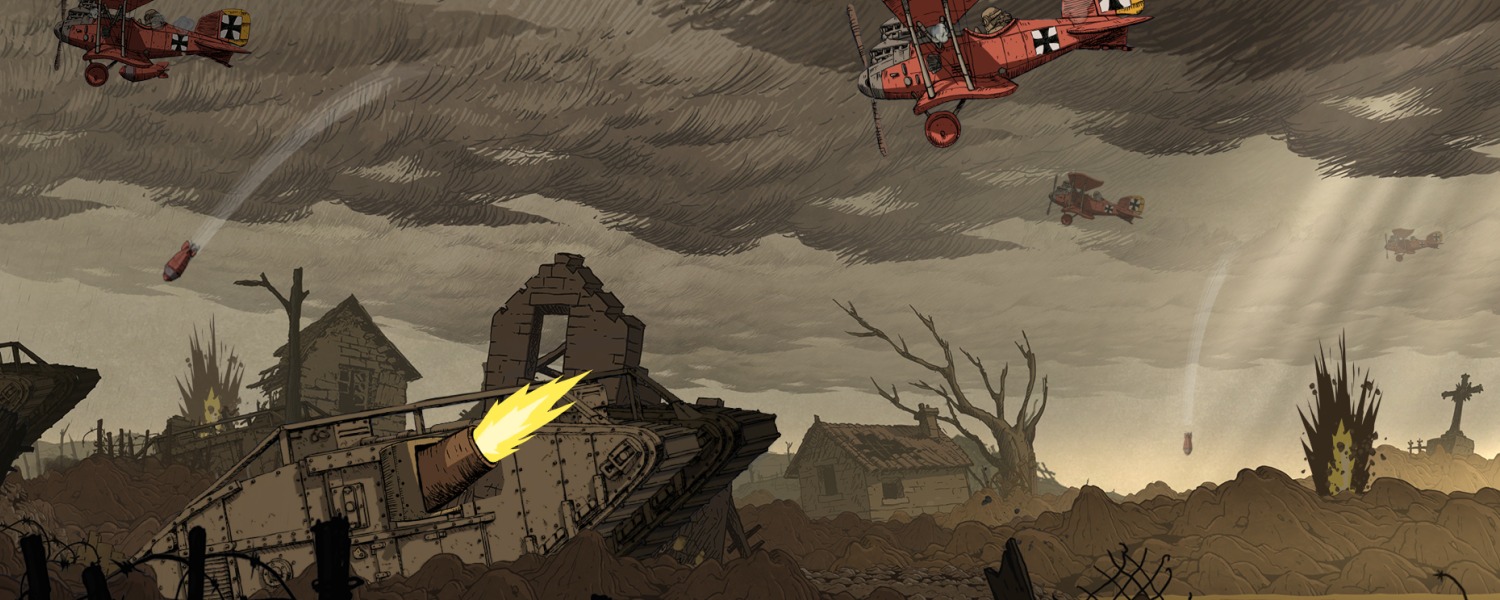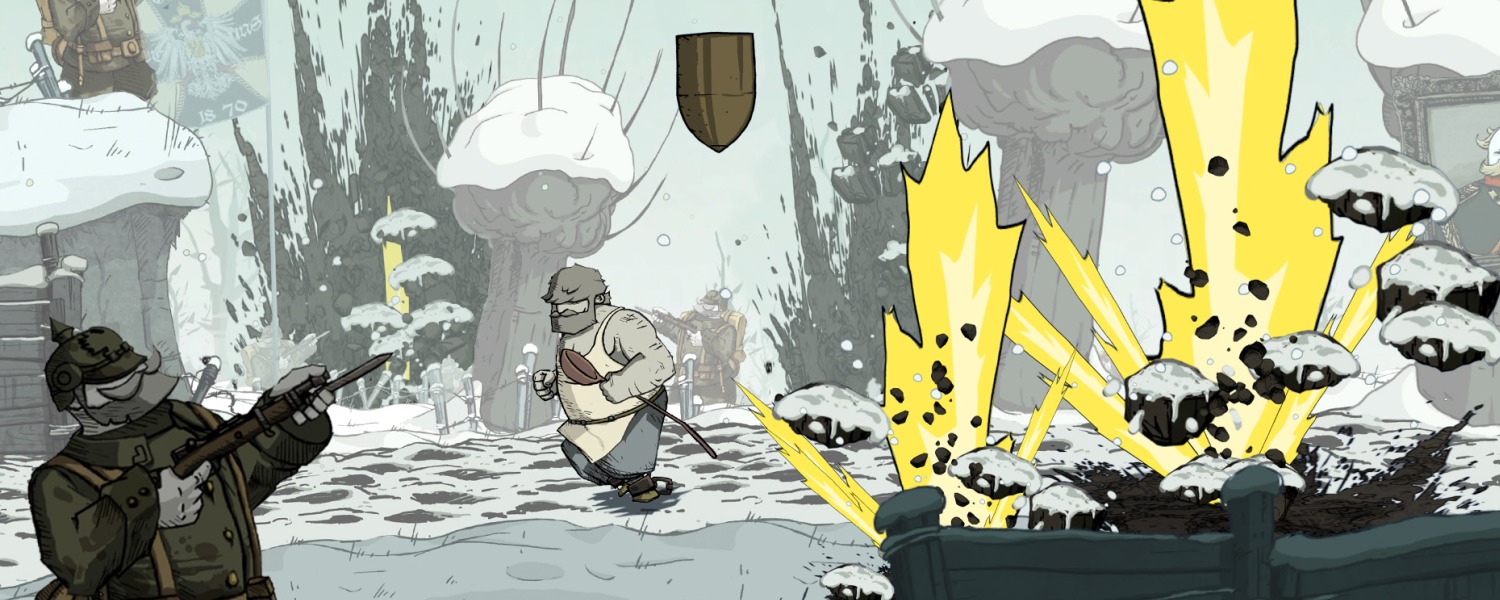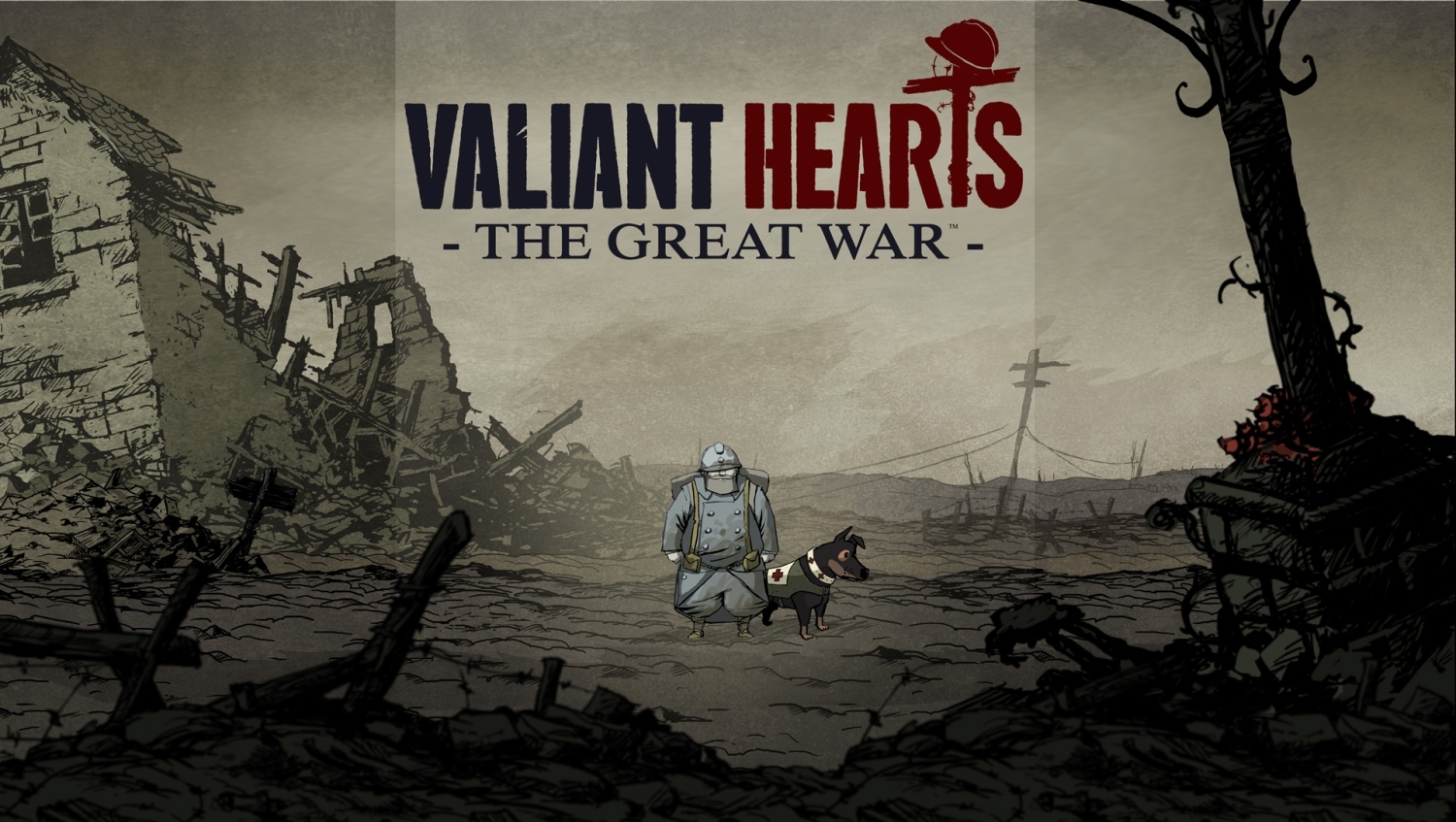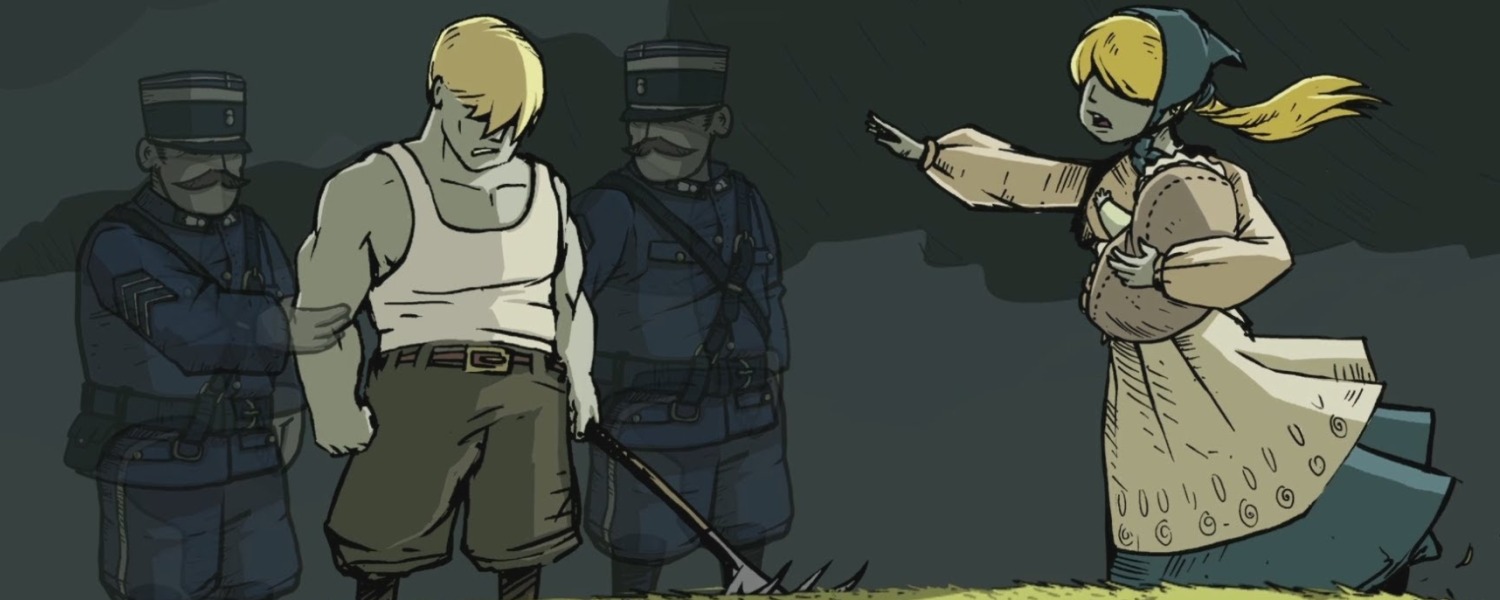
Inspired by real letters from the trenches of World War I, Valiant Hearts is a harrowing tale about four lives and how the Great War affected them. Their paths constantly crossing due to circumstance, as well as life’s great motivators; love, family, pride and even, in one instance, hatred that cuts deep to the bone.
Valiant Hearts is as genuine and authentic a wartime story as we’ve ever been gifted in this medium, and it truly runs the gamut from brutally bleak to hopeful. One hundred Call of Duty titles couldn’t paint a picture depicting the horrors of war like Valiant Hearts has, and it has done so all the while maintaining a tongue-in-cheek slapstick that rears its head from time to time.
It’s an odd, yet brilliant, balance that is struck by Ubisoft Montpellier.
Valiant Hearts begins its story in 1914, at the time of Franz Ferdinand’s assassination and Germany’s declaration of war on Russia. Karl, one of our four heroes, was a German living on a French border town with his new family at the start of this conflict and, as a cruel act of fate, is deported, being forcefully separated from them. This is the crux of the plot in The Great War, though there’s a lot of undertone and subplot at work, keeping the game compelling for its respectable run time; it took me around eight hours to see and do everything.
Baron Von Dorf, responsible for both the killing of one hero’s wife and the kidnapping of another’s father, acts as the tale’s main antagonist. That is until the war itself emerges as the senseless, greater quagmire of misery.
In a year where I thought Wolfenstein had a lock on the most refreshing wartime story—and don’t get me wrong, The New Order is an excellent game—out of left field comes Valiant Hearts, an honest and, by the end, heartbreaking glimpse at just some of the atrocities wrought on nations full of innocent people.

Powered by Ubisoft’s in-house Framework engine, as seen previously in Montpellier’s Rayman titles, as well as Child of Light, Valiant Hearts unfolds beautifully across the horizontal plain, almost like a living comic book, bursting to life from the page. Thick, bold lines trace the outlines of our characters and the world they inhabit, only to be filled in—more often than not—by the dullest of greys and service colours.
While beautiful, the game never lets you forget that this is a dire time in human history we’re reliving here. It’s the moments you remember the underlying themes in Valiant Hearts that the art is most poignant and heartbreaking. Like when thick plumes of smoke obscure the once beautiful skyline of quaint Saint Mihiel, it really hits home how quickly beauty can be ravaged by such senseless things.

Considering that Valiant Hearts draws on war as its lifeblood, graphic depictions of murder rarely take place. Bodies litter the battlefields like grains on a beach, but you don’t often see the act of death itself—unless it serves a narrative point. This came as a surprise, as I did expect the game to be heavy on all fronts, though this choice helped the gameplay remain light, while the story being told acted as the grim framing for it all.

Primarily a side-scrolling puzzle game, Valiant Hearts doesn’t reinvent the wheel as far as the core game goes. It’s more a cinematic treat than it is a challenge, though that isn’t to say there weren’t a small selection of puzzles that had me stumped.
Each of the game’s heroes offer up a different experience throughout the game’s four chapters. In one scene you might be digging underneath trenches to escape aerial bombardment, and then, as another character, you’ll be running bull true through a battlefield peppered by gunfire, propelled by blood lust. Valiant Hearts paces itself nicely, never letting one hero’s feel overstay its welcome, mixing them up quite frequently.

Though it’s a simple platform-puzzle game at heart, there are a handful of incredible sequences that set Valiant Hearts apart. They’re artistic and, as I mentioned earlier, add a little light to what is truly a terrible set of circumstances we find our characters in. One specific sequence features Anna, a medic in search of her father, happening across two of our other heroes whilst driving a taxi. The resultant scene, which sees the three of them fleeing a zeppelin blitzkrieg to the romantic composition of Johannes Brahms, is masterful.




